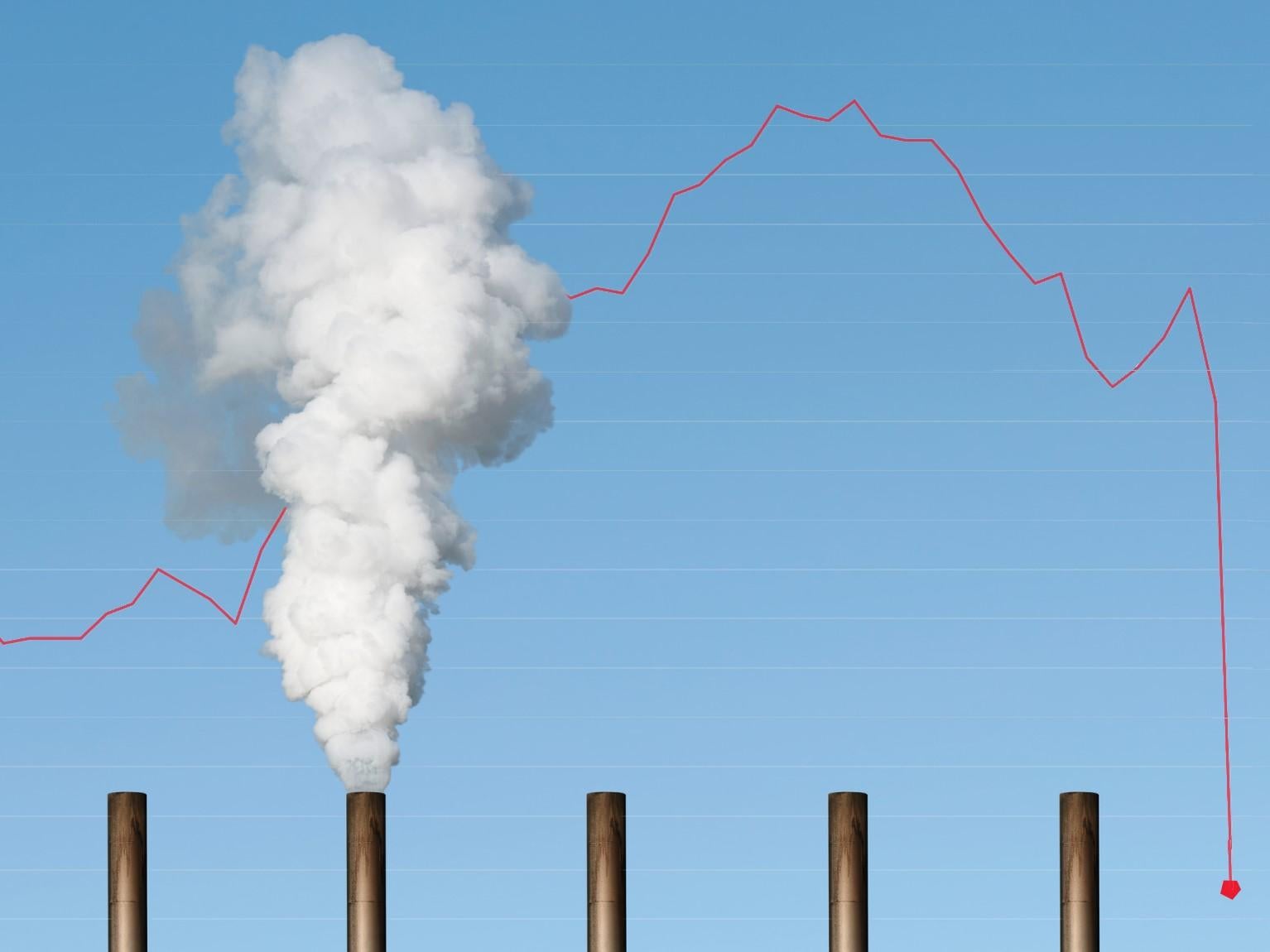Coronavirus tracked: Global CO2 emissions ‘fell to lowest level in 14 years’ during lockdowns
First definitive study of carbon output in 2020 reveals the biggest carbon crash since records began

Global carbon dioxide emissions fell by as much as 17 per cent as a result of lockdowns imposed around the world in response to the coronavirus crisis, according to a new study.
Research published in the journal Nature Climate Change revealed that daily CO2 emissions on 7 April temporarily dropped to levels last seen in 2006.
It is the first definitive study of global carbon output this year and analysed daily CO2 emissions across 69 countries, 50 US states, 30 Chinese provinces, six economic sectors, and three levels of confinement, using data from daily electricity use and mobility tracking services.
It found that global emissions could fall by up to 7 per cent this year, depending on ongoing restrictions and social distancing measures during the coronavirus pandemic.
The sharp drop represents the biggest fall in carbon emissions since records began.
In 2019, the world emitted around 100 million tonnes of carbon dioxide per day by burning fossil fuels and cement production, the research said.
In early April 2020, emissions fell to 83 million tonnes per day. Some countries’ emissions dropped by as much as 26 per cent on average during the peak of the confinement.
If pre-pandemic conditions return by mid-June, then 2020 emissions could decline by a more modest 4 per cent compared to 2019, though this would still be the largest single annual decrease in absolute emissions since the end of World War II.
A UN report last year said emissions needed to drop by 2.7 per cent a year keep warming well below 2 degrees Celsius, and 7.6 per cent a year to keep below 1.5C.
“Population confinement has led to drastic changes in energy use and CO2 emissions,” said lead author Corinne Le Quéré at the University of East Anglia.
“These extreme decreases are likely to be temporary, however, as they do not reflect structural changes in the economic, transport, or energy systems,” she added.
Previous analysis of data from Carbon Brief and the International Energy Agency revealed the unprecedented scale of the emissions decline.
China saw the largest drop in emissions in April, followed by the United States, Europe and India.
In the countries with the strictest lockdown restrictions, emissions from aviation plunged 75 per cent in early April, while emissions from land transport fell by 50 per cent and from power generation by 15 per cent.
Emissions from industry declined by around 35 per cent, with a lack of data causing some uncertainty. Emissions from residential buildings, however, increased by 5 per cent, the study said.
“The emissions reductions occurring because of Covid-19 will clearly be unprecedented. What is less certain is how the economy will rebound in late 2020 and 2021,” said Glen Peters at the CICERO Center for International Climate Research in Norway, which took part in the study.
“As different countries and sectors recover, it is unclear if activity levels will return to normal levels or if we may see permanent shifts in behaviour,” he added.
The environmental impact of coronavirus containment measures has also led to a huge reduction in air pollution in the form of nitrogen dioxide (NO2) emissions, which are released by cars, aeroplanes and other combustion engines.
Satellite images captured by the European Space Agency showed a dramatic decrease in NO2 emissions in 2020 compared to 2019.
Additional reporting by agencies.
Join our commenting forum
Join thought-provoking conversations, follow other Independent readers and see their replies
Comments
Bookmark popover
Removed from bookmarks